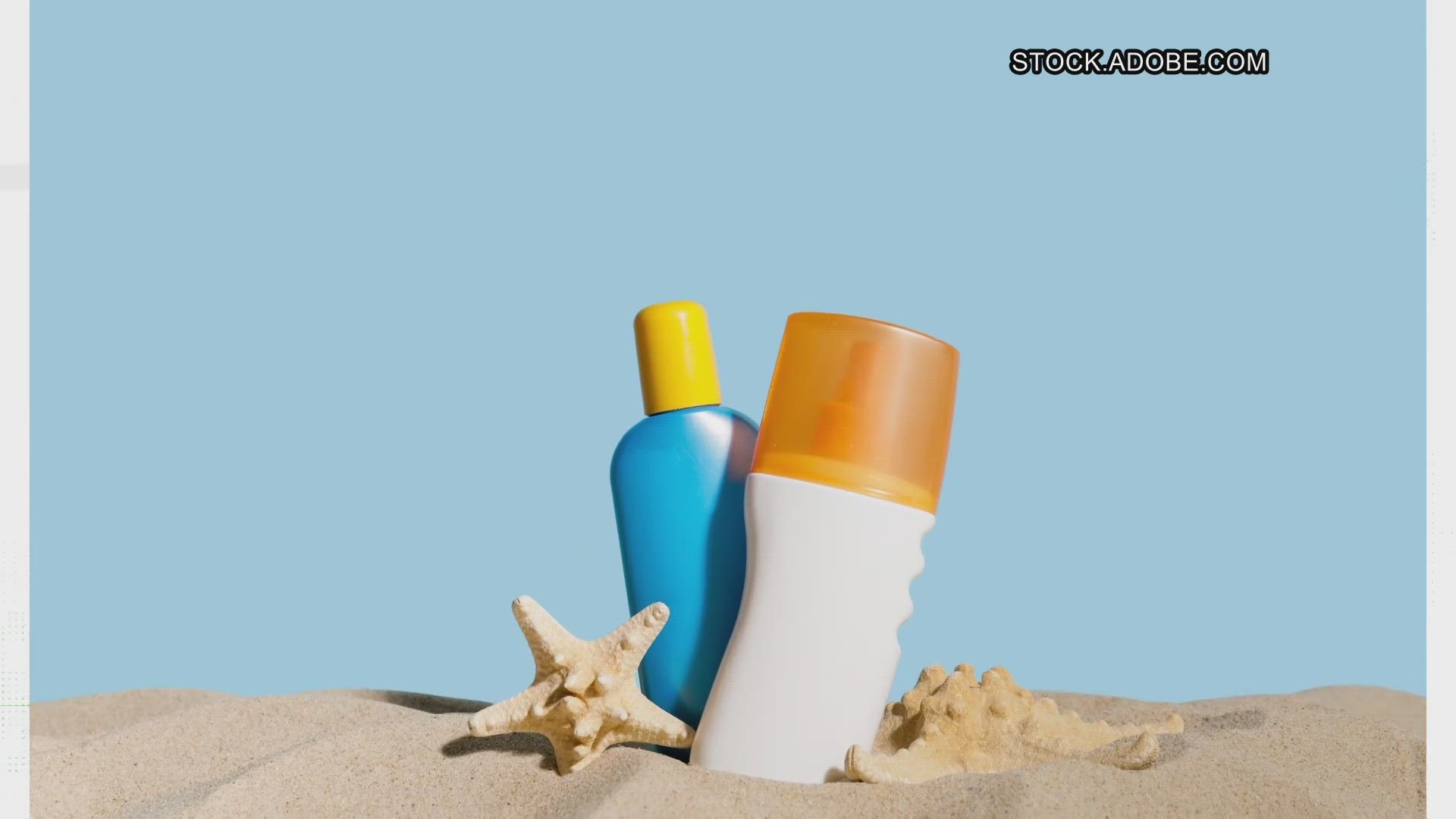GREENSBORO, N.C. — As a projected record number of people hit the pool or beach for Memorial Day weekend and plan tropical trips this summer, let's 'lather up' the truth about sunscreen.
Previously, the VERIFY team dug into research on sunscreen's expiration date, which is either printed on the label or three years after the purchase date. That rule of thumb, however, gets a bit 'greasy' when factoring in sunscreen storage.
THE QUESTION
Viewer Kathleen found an old sunscreen bottle in her car's console. It hadn't yet reached expiration but likely had been in the car since last summer. She asked, "Is it true it is unsafe to keep sunscreen in your car?"
THE ANSWER
Yes, sunscreen experts agree the active ingredients in sunscreen degrade and separate when exposed to prolonged heat.
THE SOURCES
- Food and Drug Administration (FDA)
- Sutter Pacific Medical Foundation
- Trisha Calvo -- Consumer Reports, deputy health and food editor
THE PROCESS
The FDA categorizes sunscreen as a cosmetic. In its 'shelf life recommendations,' the agency advises never leaving sunscreen in a hot car, because heat can make the preservatives break down, causing bacteria and fungi to grow faster.
Sutter Pacific Medical Foundation explains chemical sunscreens with oxybenzone and avobenzone can degrade when exposed to high temperatures, and Calvo noted the elements (particularly heat) can cause contents to separate.
"It (sunscreen) just won't protect you as well (if left in a hot car). There's no guarantee it's going to do the job sunscreen is supposed to do, and you don't want to take that chance. Any amount of sun exposure you get -- it's cumulative over your lifetime. So, you want to minimize sun exposure to your skin as best you can," Calvo said.
The best rule of thumb is to store sunscreen at room temperature. Consumer Reports regularly tests sunscreen and found no difference in performance for three years in sunscreen stored in a temperature-controlled lab. So, what should a consumer do when needing sunscreen at the pool or beach?
"It's always a good idea not to leave the sunscreen lying out in the direct sun. You can put it under a towel, under the umbrella, (or) you can even put it in your cooler, if you've got one. But, there's no real reason to worry about just one day of exposure," Calvo explained.
Therefore, yes, sunscreen is unsafe to use if stored in heat. Taking precautions can maximize its shelf life, protecting both skin and wallet.
Before applying any kind of sunscreen, Calvo encouraged consumers to shake it first to ensure all of the active ingredients are well-combined.

